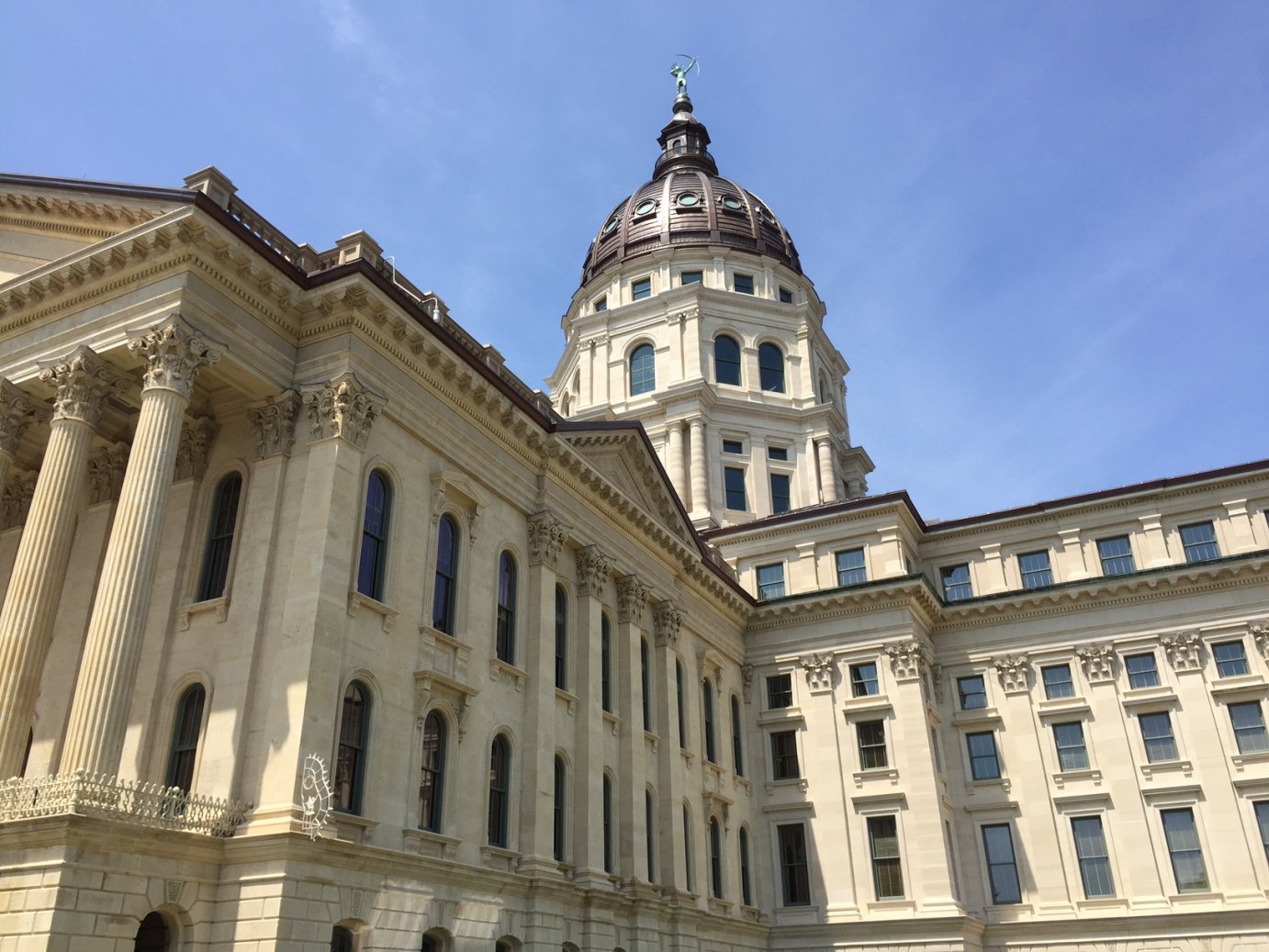A legislative push aimed at rebuilding Kansas’ defunct horse and dog racing industries has fallen at the first fence.

The Kansas Senate in Topeka missed an opportunity to “right the wrong,” in the words of Senator Bruce Givens, whose bill sought to revive the state’s extinct horseracing industry. (Image: Kansas Public Radio)
SB 427 sought to cut tax rates for racetracks, which supporters argue have been so punitive that they have killed off the once-thriving thoroughbred and quarter horseracing industry in the state.
But the bill was narrowly defeated in the Senate by 20-17, as opposing lawmakers argued the measure would violate existing agreements between the state and its four casino operators.
Despite its racing heritage, the number of racetracks operating today in Kansas is precisely zero. Its famous venues like Eureka Downs and Anthony Downs are shuttered, or in the latter case, demolished. Horse breeders and owners are forced to travel to other states to compete in races.
Righting Wrongs
SB 427 would have slashed the 40 percent cut the racetracks paid to the state when they were operational to 22 percent, in line with the amount currently paid by Kansas’ four “state owned” casinos.
“It creates the opportunity to, what I like to call, right the wrong. The wrong was when the Legislature raised the tax share from 22 percent to 40 percent,” the bill’s sponsor, Senator Bruce Givens (R-Eldorado), told the Senate, adding that he believed the bill would create 4,000 jobs.
Senate Minority Leader Anthony Hensley (D-Topeka) agreed. She said it would revive an industry that “really needs our help.”
“We need to give the racetracks a second chance,” she said.
‘Masochistic’ Litigation
But opponents cited a 2016 opinion from Kansas AG Derek Schmidt warning that the state’s casinos would likely file suit against the state for breach of contract and demand the reimbursement of millions in revenue-share payments since their establishment in 2008.
There is a breach of contract. There’s no question those contracts were meant to be punitive,” said Sen. Ty Masterson, R-Andover. “It’s almost like we have a masochistic desire for protracted litigation. I don’t understand what we’re doing.”
The Kansas casino sector is nominally “state-owned” but the fact that the casinos would sue the state to protect their interests illustrates the reality that they are anything but.
The bill attempted to address this issue by allowing racetrack owners to submit a letter of credit promising to repay the casinos. Racetrack owners would then be refunded by the state, which would return half of the racetracks’ revenue-share payments until they were quits.
But for Senator Vicki Schmidt (R-Topeka), this was too convoluted and the risk too high. She demanded to know why the Senate would gamble on undermining a casino sector that had paid $513 million to state coffers over the past decade.
“Why would we want to risk that source of revenue?” she asked.
The post Kansas Horse Racing Revival Bill Dies in the Senate appeared first on Casino.org.
from Casino.org https://ift.tt/2r9Qizy


Comments
Post a Comment